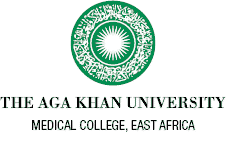Medical College, East Africa
Based in Nairobi, Kenya, the Aga Khan University’s newly established Department of Population Health entails a highly-skilled multi-disciplinary team with expertise in medical, public health, social, demography, statistical and policy sciences. Our vision is to contribute to the health of populations, particularly those most in need, by using a population health science approach.
Population Health is an emerging field of health science that represents a shift in how health events are traditionally observed and measured. By studying the context that shapes conditions and the distribution of care, population health science breaks down barriers that have traditionally separated studies of environmental health, nutrition, public health, community health, medical care, health care delivery, and other factors that affect wellness and well-being across the life cycle.
In line with the University, the Department is committed to the discovery and dissemination of new knowledge and its application, and the development of human capacities. Here, it seeks to prepare individuals to provide meaningful contributions to society through constructive and exemplary leadership roles, shaping public and private policies, and through excellence in population health research and education.
In its early stages of development, the Department has the unique opportunity to build a conceptual population health framework for understanding health and disease, linking the determinants of health to the health and health care system from the perspective of the individual, community and population.
Toward that end, the Department is interested in the ways in which cultures, ecosystems, institutions, and incentives affect health and health care provision and integrate findings from the medical, social, behavioral, environmental, economic, anthropological, psychological, legal, and political sciences.
As the first University with a Department of Population Health in East Africa, we will have the unique opportunity to introduce our discipline’s broad view to researchers, development professionals, health care managers, clinicians and policymakers. Our goal is to introduce a new, equitable and more scientific way of thinking about health that will help governments and local institutions tackle complex health issues both in the countries of East Africa and beyond.


